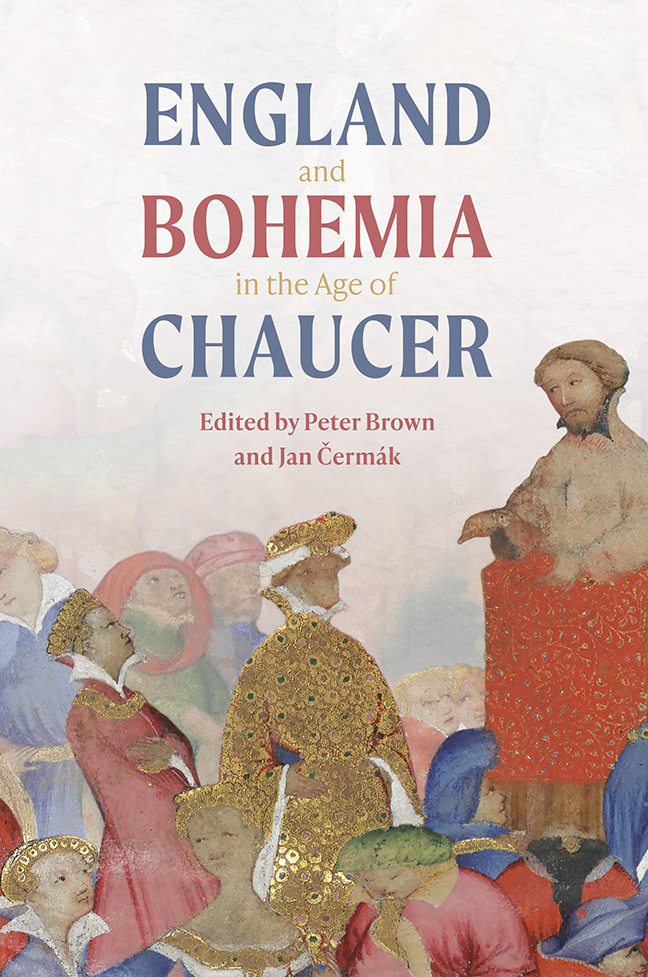3 - The Golden Book of the Knight Wenceslas: Travelling, Piety and Diplomacy in Late-Medieval Europe
Published online by Cambridge University Press: 17 December 2023
Summary
Written, pictorial, archaeological and other material evidence suggests that a manuscript kept in the Prague Castle Archives (H.15) was probably bound at the request of a knightly diplomat. He was in connection with the Imperial-Bohemian, French and English courts, probably at the end of the 1390s or in the 1400s. His travel diary, which constitutes the last quire of the manuscript, can be seen as a testimony of how a Bohemian knight would have looked at England at the turn of the fourteenth and fifteenth centuries. He was interested not only in castles, palaces and Arthurian legends but also the churches, relics and miracles connected with them, which suggests that he combined his diplomatic mission with a pilgrimage. His journey also confirms the notion that although Bohemia and England lost their close dynastic link after the death of Queen Anne, the contacts established in the previous years had by no means been lost by 1394. The situation was only changed by the Hussite wars (1419–36). The knightly member of the diplomatic mission sent by the Bohemian King George of Poděbrady to England in the mid-1460s also left written accounts of London, which resemble in many respects the analysed diary but, by contrast, do not even mention Queen Anne.
The Golden Book
The Anglo–Imperial alliance initiated by the marriage of Anne of Luxem-bourg, daughter of Emperor Charles IV, to Richard II, king of England, in 1382, had little immediate political impact. However, the dynastic connection certainly opened the door for contacts between the two countries, reflected among other things by the increasing numbers of people travelling between the two courts along the Main–Rhine waterway in the 1380s and 1390s. Regular contact continued even after the death of Queen Anne in 1394; in this connection, the transfer of Wyclif's teachings to Prague is commonly mentioned, although the actual evidence for individuals mediating such an exchange of ideas is rather scarce.
However, not everyone travelling to England at the turn of the fourteenth century need necessarily have been interested in Wyclif and his writings. In this context, there is an interesting ‘Brief report’ about a manuscript from the Prague Metropolitan Chapter Library (D.12), in which F. M. Bartoš discovered a ‘long-forgotten sad obituary, written by an anonymous English poet after the queen's death in 1394’.
- Type
- Chapter
- Information
- England and Bohemia in the Age of Chaucer , pp. 55 - 82Publisher: Boydell & BrewerPrint publication year: 2023

